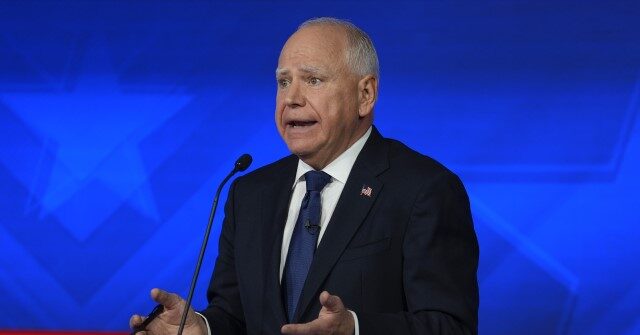In a recent report aired on CNN, senior investigative correspondent Kyung Lah highlighted concerns regarding Minnesota Governor Tim Walz’s leadership, specifically relating to accountability for fraud and mismanagement under his administration. As the 2024 Democratic vice presidential candidate, Walz has been criticized for taking a “hands-off” approach in addressing serious issues affecting state agencies. The scrutiny comes amid revelations that Minnesota’s independent auditor has released at least 16 reports during Walz’s six-year tenure, pinpointing numerous cases of alleged fraud, waste, and mismanagement. This investigation paints a troubling picture of governance and raises questions about Walz’s commitment to addressing these systemic issues.
A major focus of the report was the Feeding Our Future fraud scheme, which the U.S. Department of Justice has labeled as the “Largest COVID-19 Fraud Scheme in the Nation.” The state auditor issued a damning assessment of the Minnesota Department of Education, indicating that the agency not only failed to act on known warning signs prior to the onset of the fraud but also effectively set the stage for its occurrence by not enforcing program requirements adequately. These findings suggest a significant oversight failure on the part of state agencies that are pivotal to combatting fraud and protecting public funds.
In response to the critiques, a spokesperson for Governor Walz stated that state agencies are actively implementing recommendations from the state auditor. They pointed out that disagreements over findings are a normal aspect of governance and emphasized that the administration is keen on enhancing oversight within the Department of Education. It was also noted that the Walz administration has allocated substantial resources to bolster staffing and improve accountability mechanisms within agencies. However, the depth of these efforts is called into question given the reported shortcomings and the political context surrounding Walz’s candidacy.
An accompanying article on CNN emphasized that, despite these efforts, the response from some state agencies has often been defensive when faced with allegations of waste and fraud. Nonpartisan state auditor Judy Randall expressed her surprise at the dismissive attitudes observed among agency leaders, particularly those appointed by Walz. This lack of accountability not only detracts from the integrity of state operations but also poses potential risks to public trust in government institutions during a pivotal election cycle.
The CNN report sheds light on a broader challenge within state governance, where leaders are expected to take proactive measures in facing allegations of mismanagement and fraud. Tim Walz’s apparent reluctance to confront these issues not only draws criticism but may also influence voter perceptions as he seeks a higher office. The juxtaposition of his role as both a state leader and a vice presidential candidate creates an urgent need for transparency and accountability, particularly in the face of these serious allegations.
In conclusion, the coverage of Governor Tim Walz’s administration illuminates critical failures in leadership regarding the management and oversight of state agencies. The recurrence of reports highlighting fraud, waste, and mismanagement raises significant concerns about the effectiveness of current governance practices in Minnesota. As Walz positions himself for the upcoming election, it becomes increasingly important for him to demonstrate a commitment to addressing these issues—understanding that accountability is not only essential for good governance but also vital for maintaining the trust of constituents. The fallout from these reports could prove to be a pivotal factor in shaping public opinion, not just in Minnesota, but also on a national stage as Walz seeks to elevate his political career.

